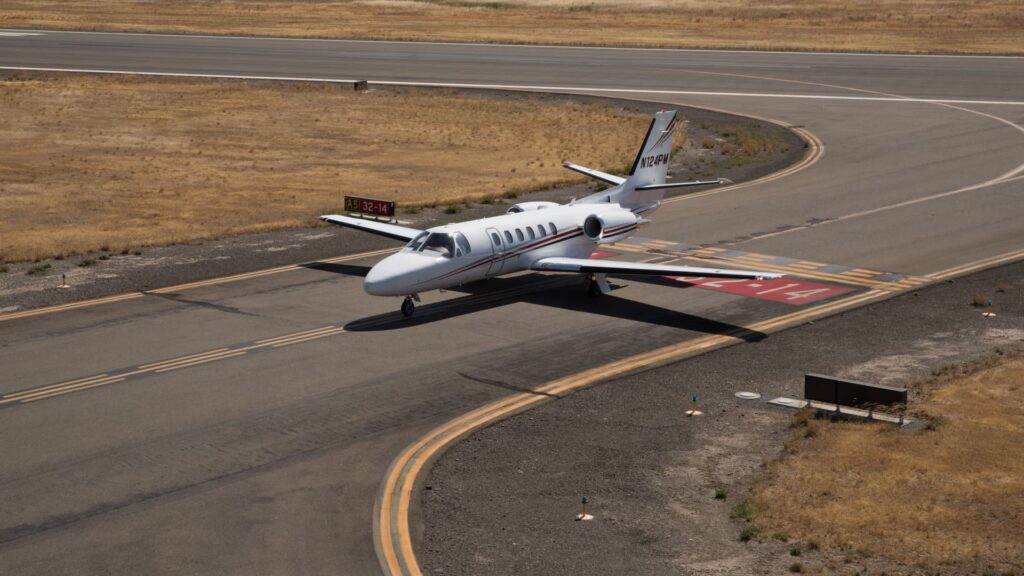
Private jet demand declines as tariffs spook would-be buyers
Private Jet Demand Declines as Tariffs Impact Market: A Comprehensive Analysis
Table of Contents
A Cessna Citation jet aircraft at Charles M. Schulz Sonoma County Airport
Market Overview
The private jet market is experiencing significant changes as consumer confidence wanes and economic factors impact purchasing decisions. Recent data from Barclays’ Business Jet Indicator survey reveals a dramatic 49% decline in customer interest for business jet purchases since March. This trend reflects broader economic concerns and the impact of new tariffs on the aviation industry.
Key Market Statistics
- 49% decline in customer interest for business jet purchases
- 23% drop in market sentiment – the largest since the pandemic
- 93% of respondents expect negative impact from tariffs
Impact of Tariffs
The introduction of new tariffs has created significant uncertainty in the private jet market. According to the Barclays survey, 93% of respondents anticipate a negative impact on new aircraft demand, with many expecting the impact to be substantial. This has led to many potential buyers putting their purchase decisions on hold, concerned about both the direct impact on aircraft pricing and the broader implications for their businesses.
Market Insight
The composite score of 40 in the latest survey indicates that manufacturers’ new orders are lagging about 10% behind current fulfillment rates, suggesting a potential slowdown in production.
Current Market Trends
The private jet market is showing clear signs of a slowdown, with the Barclays Business Jet Indicator composite score falling from 52 to 40. This decline affects all aspects of the market, from new aircraft sales to pre-owned inventory. The survey, which included 65 respondents from business jet broker-dealers and financiers, shows that 46% of participants reported deteriorating customer interest in business jet purchases.
| Market Segment | Impact Level | Outlook |
|---|---|---|
| New Aircraft | Significant Negative | 93% expect negative impact |
| Used Aircraft | Moderate Negative | 67% expect negative impact |
| Market Sentiment | Declining | Largest drop since pandemic |
Future Outlook
Despite current challenges, there are potential positive developments on the horizon. The market may receive a boost from pending legislation that could extend the Tax Cuts and Jobs Act provisions. This could reinstate 100% bonus depreciation for eligible equipment purchases, making private aircraft more attractive from a tax perspective.
Potential Market Recovery Factors
- Extension of Tax Cuts and Jobs Act
- Potential reinstatement of 100% bonus depreciation
- Retroactive tax benefits for recent purchases
Tax Implications
The potential extension of the Tax Cuts and Jobs Act could significantly impact the private jet market. The Act’s provisions for immediate deduction of eligible equipment purchases have been gradually phasing out since 2023, with complete phase-out scheduled for 2027. A return to 100% bonus depreciation could provide a much-needed boost to the market, making private aircraft purchases more financially attractive for businesses.
Key Takeaways
- The private jet market is experiencing significant decline in demand
- New tariffs are creating uncertainty and impacting purchasing decisions
- Market sentiment has dropped to its lowest point since the pandemic
- Potential tax benefits could help stimulate market recovery
- Used aircraft market shows more resilience than new aircraft sales
As the market navigates these challenges, industry stakeholders will need to adapt to changing conditions while monitoring potential legislative changes that could impact the market’s recovery. The combination of economic factors, tariff impacts, and potential tax benefits creates a complex landscape for the private jet industry in the coming months.






